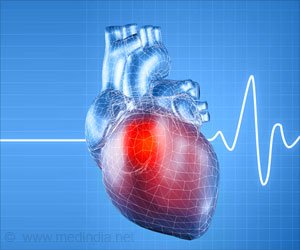Transgender People Should Not be Excluded from Receiving Hormone Therapy

“Considerable data have emerged over the past three years showing that not providing GAHT results in poor mental and physical health outcomes and increases the risk of suicidality in transgender patients,” says Robbie Goldstein, MD, PhD, founder and former medical director of the MGH Transgender Health Program.
“Our review found that VTE can be managed in most cases with anticoagulation therapy, and that discontinuing hormone therapy is not always the right answer and, in many cases, may be the wrong answer.”
Risk of Venous Thromboembolism in Transgenders
The new recommendations from a national team of transgender health specialists are the most comprehensive to date in a field of medicine that has undergone enormous change in recent years, driven by an adult transgender population now estimated at 1.4 million people in the U.S.
Advertisement
A challenge for researchers is gathering evidence in an area where little data exist, given the paucity of trial data for transgender patients on hormone therapy undergoing various gender affirming surgical procedures.
Data extrapolated from the cisgender population (i.e., individuals whose sex at birth corresponds to their current gender identify) indicate that the risk of VTE in patients receiving GAHT, specifically estrogen, was slightly elevatedthough still minimalcompared to cisgender women not on hormone therapy.
Duration of hormone therapy and route of administration may increase the risk of VTE in the transgender population, especially around the time of procedures such as vaginoplasty, facial feminization, or breast augmentation.
“Many people diagnosed with VTE are taken off hormone therapy by their healthcare providers and never restarted,” notes co-author Nathan Connell, MD, MPH, chief of Medicine, Brigham and Women’s Faulkner Hospital, and a hematologist at Brigham and Women’s Hospital.
“This practice is based on limited data, however, and we found evidence to suggest that hormone therapy can be continued in patients, even those with a VTE history, as long as full-intensity anticoagulation is also continued.”
As Goldstein points out, it’s crucial for the growing numbers of clinicians who treat transgender patients to become more informed and better prepared in an increasingly specialized field.
“It’s incumbent on the medical community to build trust within the transgender community,” he says, “and we’re hopeful that our guidance will help change practice for many primary care providers, hematologists and endocrinologists, resulting in direct and positive impacts on the mortality and morbidity of transgender patients.”
Source: Eurekalert
Source link
#Transgender #People #Excluded #Receiving #Hormone #Therapy



